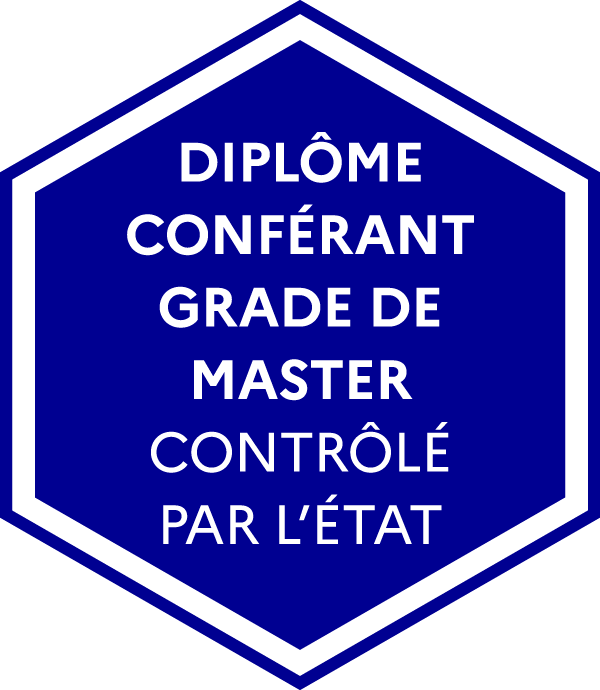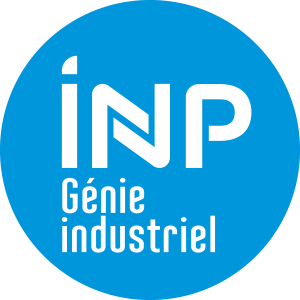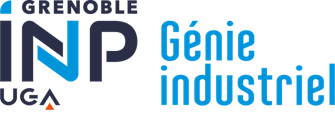Number of hours
- Lectures 9.0
- Projects -
- Tutorials 9.0
- Internship -
- Laboratory works 12.0
- Written tests 1.5
ECTS
ECTS 3.0
Goal(s)
In a product life-cycle, various constraints need to be taken into account when designing industrial processes from the design phase through to the mass production phase. These constraints can be linked to technical, economic or organisational issues. An engineer must specify and implement production technologies, human resources and adapted organisations. The industrial engineer must also manage information exchange and dialogues between the design office, production, purchasing, logistics and distribution.
This course is one of the steps to achieve these skills. It gives the basic groundwork necessary for any future industrial engineer to develop both organisational and technical skills.
The aim is to present the different methods of organising a workshop by following these approaches:
• physical implantation
• transfers between positions
This course is useful for any engineer wishing to work with production services. However, it is particularly relevant to future industrial engineers who will work closely with design offices and method & production services in order to find the best means of production for a given product.
At the end of this course, students are able to:
• Organise and optimise the implementation of the means of production
• Use robotic transfer means adapted to the situation
Content(s)
Tools and methods for implementing workshops:
- Workshop architecture
- Implementation methods
- Sizing workshop through simulation
- Introduction to Lean Manufacturing
- Practical work on a 'production start up'
Lectures & Tutorials: 8 x 1.5 hours
Practical work: 6 x 1.5 hours
Robotics :
- Robotics and industry
- Economics point of vue
- Robotics tasks in industry
- Robot models
- How to choice a robot
- Robots and security
- Collaborative robotics
- Driving and programming
- Industrial presentation of a specific application
- Practical work on robots programming
Lectures & Tutorials: 7 x 1.5 hours
Workshop: 2 x 1.5 hours
It is interesting to complete this course by the course Manufacturing Techniques & Methods.
Individual report on practical work on a 'production start up'
Evaluation on practical work on robots programming
Exam : 1.5 hours (modalities : lessons documents authorized, school calculators provided)
The course exists in the following branches:
- Curriculum - Engineer student Master SCM - Semester 8
- Curriculum - Engineer student Master PD - Semester 8
Course ID : 4GUC00C5
Course language(s): 
You can find this course among all other courses.
J Womack, D Jones, Système Lean, Pearson (2005)
JJ Villenave, Assemblage par collage, Dunod (2005)
K Weman, Procédés de soudage, Dunod (2005)
C Marty, JM Linares, Industrialisation des produits mécaniques, tomes 1, 2 et 3, Hermès (1999)
B Chapelet, C Mangione , Le lancement d'un produit nouveau : des règles pour réussir, Ed. d'organisation (1995)
JL Giannelloni, E Vernette, Etudes de Marché, Vuibert (2001)
D Michel, R Salle, JP Valla, Marketing industriel : stratégies et mise en oeuvre, Economica (1993)
French State controlled diploma conferring a Master's degree

Common Core presentation
Programme courses S5
Programme courses S6
Supply Chain Management
Programme presentation
Programme courses S7
Programme courses S8
Programme courses S9
Programme courses S10
Product Design
Programme presentation
Programme courses S7
Programme courses S8
Programme courses S9
Programme courses S10
Contacts
Academic staff
- Head of studies:
Pierre Lemaire - Head of 1st Year Program:
Abdourahim Sylla - Head of Supply Chain Management Program:
Irène Gannaz - Head of Product design Program:
Yann Ledoux
Registrar's office
- Head of Registrar's office:
genie-industriel.scolarite@grenoble-inp.fr - Secretary's office 1st Year:
Valérie Demicheli - Secretary's office 2nd Year:
Sylvie Malandrino - Secretary's office 3rd Year:
Vincente Odier - International relations department:
Nadia Dehemchi



